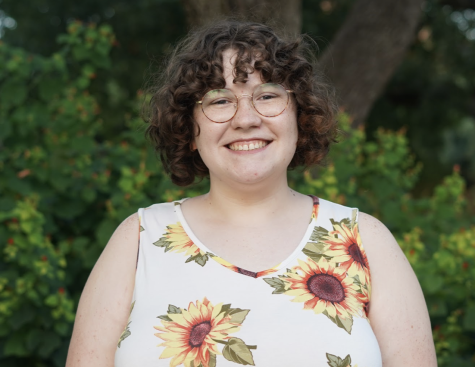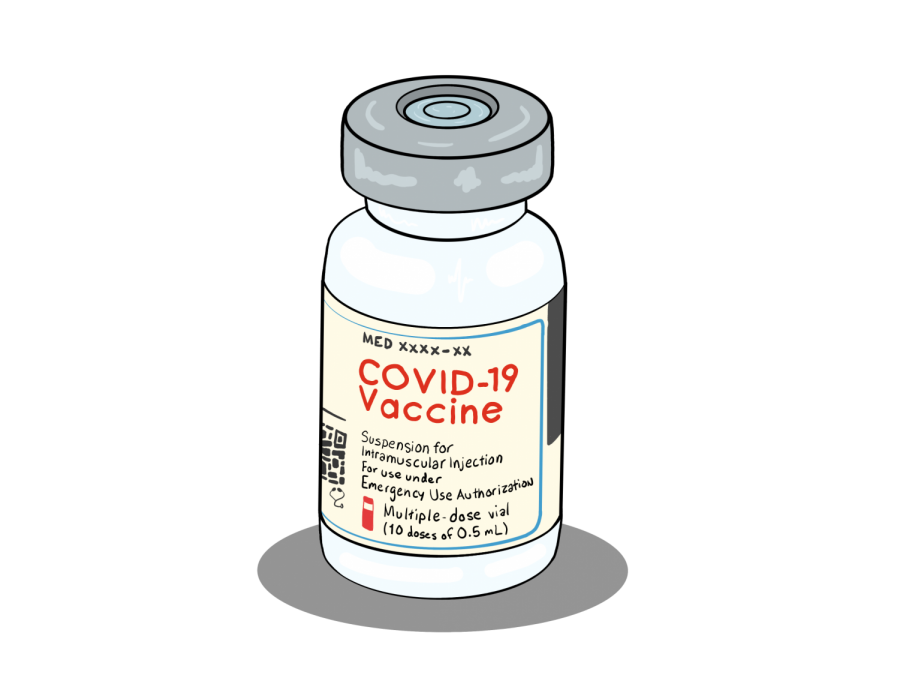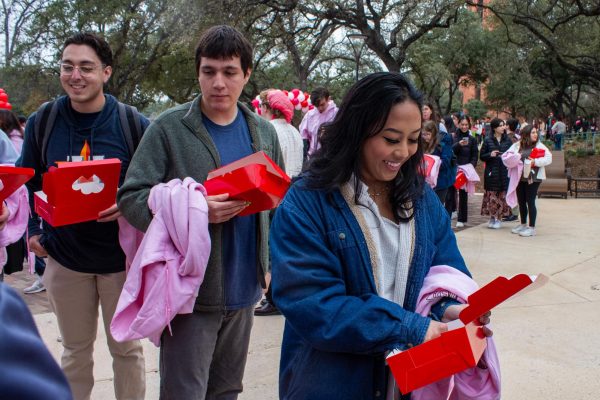University likely to ‘encourage,’ not require vaccinations in the fall
Vaccination threshold of 80%, incentives to be employed
The presidents of Georgetown University and American University, in individual letters to their communities, announced last Wednesday that they would require on-campus students to be vaccinated against COVID-19 in the fall. Like Trinity, Georgetown and AU are private institutions, prompting questions about where the administration stands on a vaccine requirement in the fall.
Despite mounting pressures, the university has not made an official statement about vaccine requirements for next semester. At the moment, it seems they’ll most likely opt to ‘encourage’ vaccinations instead of requiring them, according to Vice President for Strategic Communications and Marketing, Tess Coody-Anders.
“While we are still evaluating the impact of the Governor’s recent executive order on institutions like ours, there is enough information to suggest we would be prohibited from requiring proof of vaccination. While we will continue to monitor, for now we will focus on a voluntary vaccination campaign for faculty, staff, students and vendors,” Coody-Anders said.
According to Coody-Anders, there are a few initiatives being set in place to encourage higher vaccination rates. First, the university is aiming to set a campus vaccination threshold of 80% for the fall semester.
“In order for the fall semester to look and feel more normal — meaning we could lift our ProtecTU guidelines, resume gatherings without caps, hold in-person classes, possibly stop wearing masks, etc. — we hope to achieve a vaccination threshold of 80%, based on calculations developed in conjunction with our epidemiologists and public health officials,” Coody-Anders said.
On-campus students, faculty and staff will be taken into account when meeting vaccination goals, which means that faculty and staff will likely not be mandated to get the vaccine if they don’t wish to receive it.
University physician Marcy Youngdahl said that she hopes the community will see the value in being vaccinated.
“In our COVID-response meetings as we plan for the fall, we are very anxious to see what our vaccination rate will be. I hope to see a very early uptake of the vaccine by all students, faculty and staff. I hope that people see the value in knowing that they are dramatically reducing their likelihood of moderate to severe illness, hospitalization and death from COVID-19. I hope that they feel pride in knowing that through vaccination, they are protecting their vulnerable classmates, professors, friends, and community members.”
In addition to the threshold, the university is working to create incentives for students who have received the COVID-19 vaccine.
“We also hope to offer incentives for students who share their documentation, and we are excited to share more about that in the coming days and weeks,” Coody-Anders said.
The community will also have access to a portal where they can voluntarily share their proof of vaccination.
“We will launch a campaign this week to encourage everyone to share documentation of their vaccination, and we will transparently track our progress toward that goal with all of campus,” Coody-Anders said.
Coody-Anders also shared that Trinity’s vendor partners, who aren’t eligible to receive the vaccine administered by the university, now have an opportunity to get vaccinated this week.
“All of our vendor partners — ABM and Aramark — have been invited to participate in this week’s Moderna clinic on Wednesday-Friday, and we sincerely hope they will take advantage of this convenient option. Our partners are often our frontline in interacting with students, faculty and staff, so it will be important that as many of them are vaccinated as possible to protect themselves and the campus,” Coody-Anders said.
Dependents and family members of faculty and staff are also invited to participate in the Moderna clinic.
“We are encouraging supervisors and managers to provide staff the flexibility they need to pick up and return family members as it is critical that both our campus and Bexar County at large achieve our vaccination goals,” Coody-Anders said.
As for universities like Georgetown, Youngdahl said that she is interested in seeing what these vaccine mandates ‘truly entail.’
“The policies which I have reviewed allow for exemption due to medical, religious or “other” reasons (most commonly objection to a vaccination which is approved through Emergency Use Authorization). I have not seen policies which restrict those filing exemptions from living on campus or attending in-person classes. I know we are evaluating whether it is even possible for Trinity to require vaccinations at this time due to recent state restrictions on such mandates,” said Youngdahl.
St. Edwards University in Austin, also a private institution, has announced that they will require students to submit proof of vaccination if they wish to live and operate on campus. This mandate, however, does exempt some individuals.
“The policy announced on Monday, March 29 provides exemption pathways supporting student and employee choices related to religious beliefs, underlying medical conditions, and concerns associated with Emergency Use Authorization,” wrote the university in an official statement.
At the moment, the university is working towards vaccinating students, faculty and staff who sign up for an appointment online. Associate professor of English Kelly Grey Carlisle was one of many faculty members vaccinated by the university. Carlisle had originally made an appointment with the city which she later cancelled to sign up through Trinity’s portal.
“I had made an appointment with the city, and that process was more difficult and stressful than it should have been. I hate to think what it was like for people with no computer skills or no time. I cancelled my city appointment so I could do it at Trinity instead. Cancelling my appointment with the city was easier than making it,” Carlisle said.
As for the efficiency of the vaccination process, Carlisle showed appreciation for everyone involved.
“The process was so efficient and organized and the workers were so friendly. Thanks to the COVID Team at Trinity for making this happen and doing such a good job,” Carlisle said.
For anyone who has doubts about getting the vaccine, Carlisle has a few words of advice.
“Please get it as quickly as you can. I know there is a lot of suspicion surrounding the speed with which these vaccines were developed. The speed isn’t the result of cutting corners but of a lot of hard work and overtime on the part of scientists — people much like the brilliant, kind and ethical scientists you work with and learn from at Trinity, so go get that shot and thank a scientist,” Carlisle said.
Youngdahl also echoed Carlisle’s sentiment about the importance of getting vaccinated against COVID-19.
“I cannot emphasize enough how important the COVID-19 vaccinations are to an individual’s health and safety as well as to the community as a whole. These vaccinations have thus far proven extremely effective in reducing moderate to severe illness and death. Additionally, recent data has demonstrated that vaccinated individuals are at lower risk to contract (become infected) and therefore lower risk to transmit the virus. This is exactly what a highly successful vaccine should do. I am amazed that such an effective vaccine has been made available in such a short period of time,” said Youngdahl.
Youngdahl also explained why all age groups should get vaccinated as soon as possible.
“People aged 20-49 spread COVID-19 at a disproportionately higher rate than other age groups. In order to achieve herd immunity, meaning enough people within a population are immune to the virus and thus do not spread the virus, we need for people within all age groups to be vaccinated. I especially feel that those aged 20-49 should be vaccinated in high numbers to halt the transmission of this virus. As we see variant strains spread internationally and within the United States, it becomes even more critical that we achieve very high levels of vaccination quickly. The longer that COVID-19 circulates in high numbers, the more opportunities the virus has to mutate and become more virulent (more easily spread and/or more deadly) and render our vaccinations less effective,” said Youngdahl.
As for a ‘return to normalcy,’ Youngdahl said that herd immunity stands between students and their return to a more typical college experience.
“In order for Trinity to return to full classroom and dormitory capacity, it is critical that we approach herd immunity through vaccination. We are striving for a vaccination rate of greater than 80% for students as well as 80% of faculty and staff. We are also counting on a high vaccination rate of Texas as well as Bexar County since Trinity is not a “bubble.” As with any vaccine, there are some members of the community who will not be able to be vaccinated, but if the vast majority are immune through vaccination, the threat of spread of the virus dramatically drops. The threat of large outbreaks drops. The need for large numbers of isolation dorm rooms drops. The need for very costly weekly surveillance testing drops. The capacity for indoor gatherings increases. The ability for students to live as roommates returns,” said Youngdahl.

I'm a senior Computer Science major and a Classical Studies minor from Newton, North Carolina with a passion for art. I also work at the Center for Experiential...










